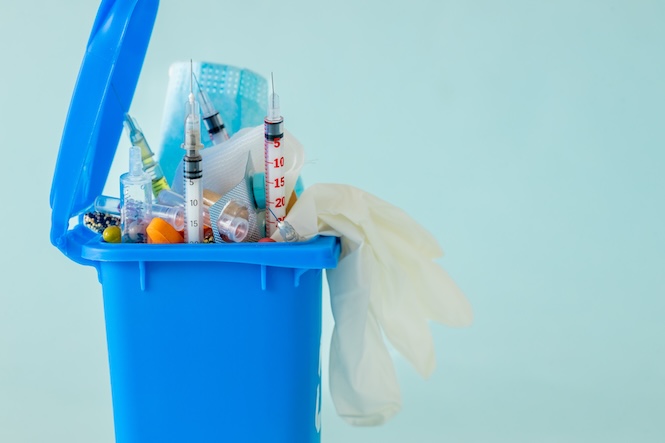As pharmacy students, we are trained to prioritize the safest and most effective medications for patients. However, we are not equally taught to value the importance of providing environmentally sustainable care. I find this troubling, considering that despite the healthcare sector’s move towards more sustainable practices, it remains a major contributor to overall greenhouse gas emissions, with medications being a significant part of the problem.
However, hospital pharmacists can significantly impact environmental conservation efforts, and should we learn to support these initiatives at the beginning of our careers, we can continue to do so throughout our professional lives.
Personally, I have only come across one or two slides discussing how certain types of inhalers are more environmentally friendly than others. This limited exposure suggests that environmental considerations have not routinely integrated into future pharmacists’ education. I believe it’s just as crucial to incorporate this aspect into every pharmacy program, as safety, effectiveness, cost, and tolerability when choosing medications for patients. It enables us to shift away from the paternalistic model of care, where healthcare decisions are made by the healthcare provider without much input from the patient, towards a more patient-centered approach, where greater emphasis is placed on collaborating with the patient. When patients need a new inhaler to manage their asthma, pharmacists can choose one that’s environmentally friendly. For instance, metered dose inhalers, a common type of inhaler prescribed by physicians, have a carbon footprint equivalent to driving up to 139 km by car. For environmentally conscious patients, this may conflict with their personal values as they seek to minimize their environmental impact. As a result, they may prefer to explore alternative options for managing their asthma. This also provides an opportunity for pharmacists to educate patients on proper medication disposal methods available at community pharmacies, thereby preventing medication residues from being released into the atmosphere.
In my time working in hospital environments, I’ve seen extensive use of single-use personal protective equipment such as gloves, gowns, and face shields, all discarded after one use for sterility. By exploring sustainable alternatives like biodegradable materials or reusable options, we could significantly reduce waste. To date, reusable personal protective equipment options have proven to be effective in infection control while also being environmentally friendly. For instance, a study in the United Kingdom found that switching from disposable PPE to reusable gowns and face shields over a six-month period could have cut total emissions by 20 per cent.
Pharmacists shoulder the dual responsibility of safeguarding patient health and considering the environmental impact of healthcare practices. Environmental sustainability in healthcare aims to provide medical services while minimizing harm to the planet, benefiting both patients and the environment. Hospital pharmacists can play a pivotal role in this endeavor by prioritizing medications with lower carbon footprints and integrating environmental considerations into patient care decisions. Despite the current lack of emphasis on environmental education in pharmacy programs, advocating for its inclusion is essential to cultivate a holistic approach to patient care. Embracing a patient-centered model and exploring sustainable alternatives can lead to a healthier future for both patients and the planet.
By Jacqueline Tian-Tran
Jacqueline Tian-Tran is a pharmacy student at the University of Saskatchewan in Saskatoon.


